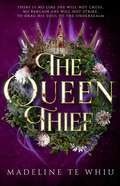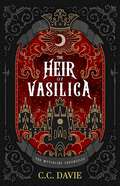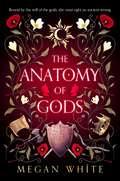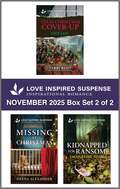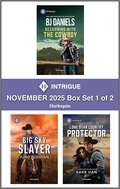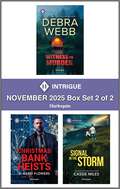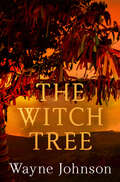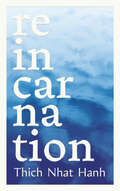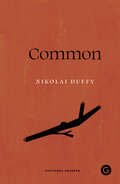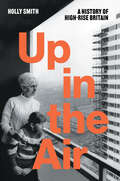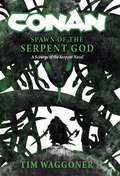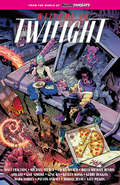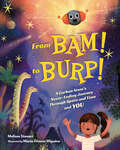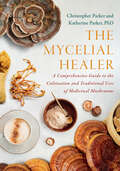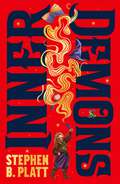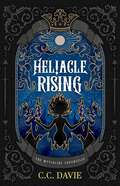- Table View
- List View
Queen Thief
by Madeline Te WhiuTelium is playing a deadly game, risking everything she knows and holds dear. The cities, the temples, even the Goddess's hang in the balance. She is running out of hands to play, Alkoria the losing bet.She has fought rebellions, killed kings, and broken queens, but nothing will prepare her for her final battle. With her newfound family by her side, and the threat to her people, Telium suddenly has everything to lose. And as the game becomes far more perilous, inconceivable players come forth from the shadows. Telium must push herself to her limit and dig deep into a past with secrets may destroy her. With a command branded on her soul, she will bargain with the Underrealm, usurp the balance, and become more vicious than ever to save her people. But she cannot predict the power play that will shake the very foundations of Alkoria. In a desperate fight to save her people, Telium will risk it all. She is sure to discover that the only thing guaranteed in war... is death. In this triumphant conclusion, Madeline Te Whiu takes us on a whirlwind of action, adventure and steamy romance.
Heir of Vasilica
by C.C. DavieBorn in blood and pain, tradition would have seen Lyrik thrown to the wolves with her mother's body, her soul destined to roam the woods with her sisters. But fate laid its cold hand on her, leading her towards a path that only the strongest could survive.Headstrong and vengeful, Lyrik has nothing left to lose when she returns to her birthplace as a young woman, intent on tearing her father's empire apart from the inside. But the Vasilica's are a formidable enemy, and the devastation she unleashes could cost her everything.
Anatomy of Gods
by Megan WhiteKasira Severen broke her mother&’s dying wish to secure the prince his throne – her betrayal carved into the foundation of his rule. Now as a sworn assassin of the Sect, she has nothing left to lose. But when a hidden truth unveils the God&’s true plan, she realises fate was never hers to command. Veridian Erris wears the crown of Livadha, but the weight of it is crushing. His family lost to the exiled Queen, his kingdom teetering on the brink of war and the only woman he ever loved swallowed by the city&’s underbelly. Poised on the frontline, revenge could be his. But with a fractured kingdom and a council that questions his every move, his longing for Kasira might just cost him everything. With a twisted prophecy, gods holding grudges and a sisterhood guarding a dangerous secret, Livadha stands of the edge of ruin.
Love Inspired November 2025 Box Set - 1 of 2
by Marta Perry Susanne Dietze Lee Tobin McClainLove Inspired brings you three new titles! Enjoy these uplifting contemporary romances of faith, forgiveness and hope.This box set includes:THE AMISH MATCHMAKERS (A Brides of Lost Creek story)by New York Times bestselling author Marta PerryWhen Amish widow Hannah Esch agrees to play chaperone to a group of teenagers from different communities, the last thing she expects is to be working with Samuel Miller. She hasn&’t forgotten how he&’d objected to her marriage to his business partner&’s son, but she can&’t go back on her promise to help her beloved grandfather. Aware of how little Hannah thinks of him, Samuel hopes this project will mend the bridge between them. When her twin boys take a liking to Samuel and she begins to see him in a new light, can she make room for forgiveness…and a second chance at happily-ever-after?AN UNEXPECTED CHRISTMAS HELPER (A K-9 Companions tale) by New York Times bestselling author Lee Tobin McClainAfter discovering he has a toddler daughter, engineer Evan Dukas needs all the help he can get—even if it comes from Vanessa Johnson, the woman who once crushed his heart. With financial worries mounting and Christmas just around the corner, the single mom agrees to be little Lily&’s temporary nanny, and vows not to let working for Evan derail her recovery from an eating disorder. With her service dog, Snickers, at her side, Vanessa is on the path to healing, and soon old feelings reawaken between her and Evan. But when buried secrets regarding Vanessa&’s son are revealed, they must decide if what they have is worth fighting for…HER PRETEND HOLIDAY BEAU (A Home to Foxtail novel)by Susanne DietzeFaced with planning the town&’s Christmas nativity event, veterinarian Mick Larson turns to his childhood friend for some much-needed help. But florist Sadie Dalton requires something in return: a wedding date. It&’s the perfect solution to avoid her now-engaged ex and some well-meaning matchmakers. That is, until a kiss under some mistletoe results in a giant misunderstanding. Now they must pretend to be a real couple through the holidays. But as their friendship slowly blossoms into something more, can they keep up the charade…when they start believing it themselves?For more stories filled with love and faith, look for Love Inspired November 2025 Box Set – 2 of 2
Love Inspired Suspense November 2025 - Box Set 2 of 2
by Terri Reed Deena Alexander Jacqueline AdamLove Inspired Suspense brings you three new titles! Enjoy these suspenseful romances of danger and faith.This box set includes:TEXAS CHRISTMAS COVER-UP (A Texas Justice novel) by Terri ReedWhen widowed FBI agent Kara Evans returns to sell her late mother&’s home, eager to shed reminders of her tragic past, she&’s assaulted by a masked attacker. With the house ransacked and a daughter to protect, Kara must turn to her former love, police chief Jeremy Hamilton, to track down her assailant. But when the trail of clues leads to unanswered questions about her father&’s cold case murder, it&’s clear that someone is determined to keep Kara from uncovering the truth. As a string of new murders unfolds, can they expose this deadly plot before Kara is silenced forever?MISSING AT CHRISTMASby Deena AlexanderWhen journalist Lexi McKenna receives a desperate call for help, she rushes to her sister&’s home, only to find her sister dead and one of her twin nieces missing. With her past mafia ties resurfacing, Lexi must go on the run with agent Noah Thompson to protect herself from her father&’s enemies. Although Lexi is the daughter of the mob boss who murdered Noah&’s brother, Noah will do anything to take down her family—even work with her. As danger looms from all sides, they must find the abducted baby and dismantle a criminal empire before Lexi and her nieces end up as collateral damage.KIDNAPPED FOR RANSOMby Jacqueline AdamDoctor Chelsea Eidman thought she&’d finally escaped the perils of her late husband&’s secret life as a diamond thief—until his former accomplice attacks her. The danger escalates when a vengeful mobster kidnaps Chelsea&’s daughter and friend, demanding the stolen diamonds in exchange for their lives. To recover the gems, Chelsea joins forces with officer Matt Reynolds, whose sister has also been abducted. As they race against time, they find themselves in deadly pursuits across harsh terrain. With everything on the line, Chelsea and Matt must outsmart their enemies and unravel a web of lies…before their families pay the ultimate price.For more stories filled with danger and romance, look for Love Inspired Suspense November 2025 Box Set – 1 of 2
Harlequin Special Edition November 2025 - Box Set 1 of 1
by Stella Bagwell Melissa Senate Makenna Lee JoAnna SimsHarlequin® Special Edition brings you four new titles for one great price, available now! These are heartwarming, romantic stories about life, love and family.This Harlequin Special Edition box set includes:CHRISTMAS ON THE RANGEMen of the Westby USA TODAY bestselling author Stella BagwellThis Christmas, his kiss is on her list.Bonnie Hollister isn&’t interested in romance. Ever. After her ex-boyfriend dumped her to make a play for her more outgoing twin, Bonnie put her heart away. She has wealth, beauty and a family legacy, but clearly, love is not for this demure cowgirl. Until Bonnie meets horse trainer Mose Martel, and her reserve slowly unravels with thoughts of kissing and…Mose has the broken heart to prove that a woman of means will choose wealth over love. He&’d rather two-step his way between heartache and hookups. But pretty, shy Bonnie has woven a spell around Mose&’s heart. And a glimmer of hope ignites. This Christmas, can they overcome past pain and fear to unwrap the love they both deserve?THE BABY&’S CHRISTMAS RANCHDawson Family Ranchby Melissa SenateThe ranch has a new boss…And he&’s six months oldRanch foreman West Calhoun is honored when his late boss leaves him half ownership of Heartland Hollows…but he&’s stunned when he meets his six-month-old co-owner. Baby Liam Dawson has no known connection to the ranch or its former owner, but he&’s still in charge now—by proxy through his beautiful mother, Gracie. And that means it&’s up to West to show Gracie the ropes. With his foreman duties and his moody preteen daughter, the last thing he has time for is babysitting. But when West and Gracie begin working side by side, they may discover how perfectly they fit as partners…in more ways than one.BIG SKY SLEIGH BELLSThe Brands of MontanaBy USA TODAY bestselling author JoAnna SimsIt started as a search for her real father…That was what brought horse trainer—and former rodeo daredevil!—Ritza Castillo to Hideaway Ranch and the Brand family. What she expected to find: Butch Brand, her biological father? What she didn&’t expect to find—Lane McBride, the boy she fell for as a teenager…the one she&’d never been able to forget. It turned out he&’d not forgotten her either! But though feelings on both sides still ran strong, Lane and Ritza&’s future plans seemed to lead in opposite directions. Unless the joy of the season could light the way to a shared future…together?HER COWBOY FOR THE HOLIDAYThe Cameron Familyby Makenna LeeCan a little holiday magic turn liars into lovers?Victoria Cameron isn&’t looking for love—she&’s too busy chasing adventure. Seeking an invite to a private art auction, Victoria doesn&’t hesitate to crash Cade Whitley&’s work event announcing herself as his girlfriend. When the &“King of Dallas Nightlife&” reluctantly goes along with her ruse, Victoria&’s intrigued. Besides, it&’s just a harmless fake date for one night.Cade has no time for distractions, especially a carefree spirit like Victoria. But now their &“date&” has morphed into a Christmas weekend together to impress his boss. What starts as a charade becomes a weekend of undeniable chemistry—which suddenly, uncharacteristically, has this cowboy dreaming of settling down. But Victoria still craves freedom and change. As the holidays approach, can what started as a fake date move from a weekend to remember into true love?
Harlequin Romance November 2025 Box Set
by Cara Colter Scarlet Wilson Kandy Shepherd Karin BaineHarlequin Romance – November &‘25 – Box Set Harlequin® Romance brings you a collection of four new titles, available now! Experience the rush of falling in love! This Harlequin® Romance box set includes:SECOND CHANCE UNDER THE MISTLETOEBy Kandy ShepherdNatalie is having a nightmare Christmas. Her daughter, Clem, has invited her dad over from Australia—and Natalie hasn&’t seen her ex, tycoon Jon, for twenty-two years! They agree for the sake of their daughter to pretend to be the perfect family, but Natalie soon discovers the spark between them never died! After two decades of hurt, can she risk her heart for a second chance—or is this festive fling just for the holidays?CHRISTMAS SURPRISE FOR HER BOSSBy Scarlet WilsonItalian banker Leo is stunned to hear his gorgeous new employee Clem is pregnant with her former boyfriend&’s child…and to find himself offering his support! Leo isn&’t sure what he&’s doing—what does he know about babies?—but he&’s certain that he and Clem have an instant connection, one he&’s not ready to let go of… With a huge responsibility looming, will he be able to overcome his fears and claim his fully formed family in time for Christmas?THE PRINCE FROM HER PASTBy Cara ColterAs a teenager, Prince Enrique fell for Gabriela, daughter of the palace cook. But his destiny as heir to the idyllic Mediterranean island kingdom meant their forbidden fairy tale romance had to end. Still, he&’s never forgotten her…so their surprise reconnection eight years later quickly becomes a balm to widower Enrique&’s troubled soul. What&’s more, his young son is equally enchanted by her! And as their grief-torn family begins to heal, dare Enrique rip up the royal rule book and make Gabriela his princess at last?THE TYCOON&’S FESTIVE HOUSEGUESTBy Karin BaineTycoon Gabe doesn&’t do Christmas—it only gifts him painful memories. But Gabe&’s brooding is interrupted when he stumbles upon his employee, Aurelia, taking refuge in his department store! Not totally immune to the festive spirit, as her boss he feels compelled to offer newly evicted Aurelia a safe place to stay. Yet, he&’s entirely unprepared for her sunny personality to warm his sprawling home… Or for their lonely souls to find solace in each other. Gabe soon wishes she could stay. If only she wasn&’t out of bounds…
Harlequin Presents November 2025 - Box Set 2 of 2
by Caitlin Crews Annie West Louise Fuller Clare ConnellyHarlequin Presents brings you four full-length stories in one collection! Experience the glamorous lives of royals and billionaires, where passion knows no bounds. Be swept into a world of luxury, wealth and exotic locations.This box set includes:AN HEIR FOR CHRISTMASby USA TODAY bestselling author Caitlin CrewsFacing new boss, Antonluca Aniello, Hannah Hansen realizes he&’s the reason she lost her last job. Worse? He&’s also the anonymous man she shared one scorching encounter with… And if the merciless Italian had fired her for an out-of-context comment to the media, how will he react to discovering he&’s a father?Demand marriage. That&’s what Antonluca will do. His outrage that Hannah hid his child is matched only by the need to have her back in his bed. So, this holiday season, he demands his son—and a bride!STOLEN PREGNANT BRIDEby Annie West. On Stella White&’s wedding day, she&’d rather be anywhere else. However, the on-paper union gives the secret she&’s carrying much-needed security. Or it would, if Gio Valenti – her father&’s enemy and the billionaire whose sizzling touch haunts her—wasn&’t stealing her from the altar!Gio refuses to relinquish the woman he craves. Especially when she&’s pregnant with his baby! Still, Stella's family is responsible for destroying his, so he&’s torn between distrusting her and desiring her. Now Gio has nine months to decide once and for all…TYCOON&’S TERMS OF ENGAGEMENT (A Greek Inheritance Game novel)by Clare Connelly. Tycoon Dante San Marino&’s marriage was his sole failure. He&’s vowed never again! Besides, his long-term fling with Charlotte Shaw provides all the no-strings advantages he could desire. Until she asks him to tie the knot!Taking over her father&’s empire rests on Charlotte being the first of his heirs to wed. To secure Dante&’s &“I do&”, she&’ll accept his single condition: playing up their pre-wedding bliss for his ailing grandmother&’s benefit. Behind closed doors, nothing need change. Yet, acting the doting fiancée under Dante&’s soul-searing gaze has their engagement arrangement feeling anything but convenient…BUSINESS BETWEEN ENEMIESby Louise Fuller. Freshly appointed head of her father&’s company, Hennessy Wade is working feverishly hard to throw off her wild-child reputation. She&’s still reeling from the news that her co-CEO is hatefully arrogant billionaire Renzo Valetti… Her face burns as she remembers youthfully – mortifyingly – kissing the devil himself!Hennessy epitomizes the kind of recklessness that cost Renzo&’s parents their lives. She&’s impulsive, spontaneous… and a temptation he will refuse! Until an Italian business trip has him questioning everything he thought he knew about Hennessy's supposedly scandalous past… And reconsidering the line between disdain and desire!For more stories filled with passion and drama, look for Harlequin Presents November 2025 – Box Set 1 of 2
Love Inspired Suspense November 2025 - Box Set 1 of 2
by Valerie Hansen Mary Alford Sami A. AbramsLove Inspired Suspense brings you three new titles! Enjoy these suspenseful romances of danger and faith.This box set includes:FINAL SHOWDOWN (A Dakota K-9 Unit novel) by USA TODAY bestselling author Valerie HansenInvestigating a gun smuggling ring leads ATF Special Agent Daniel Slater to a murder victim&’s house—and right into a drive-by shooting. With his K-9 partner, Dakota, he helps save crime scene investigator Aurora Martin from flying bullets. But there are no clues as to why Aurora is a target. Suspecting a case of mistaken identity, Daniel insists she will be safe hiding out at his home—until gunmen infiltrate the property. Now, to protect Aurora, Daniel must hunt down their attacker. But can he catch the culprit in time…or will this case be Aurora&’s last?SHATTERED AMISH IDENTITYby USA TODAY bestselling author Mary AlfordWhen Amish school teacher Hannah York is attacked, she defends herself with skills she never knew she had. CIA agent Titus Miller arrives, claiming that she&’s actually fellow agent Lara Redmond—and that she&’s in danger from a powerful enemy. Despite suffering from amnesia, Hannah is certain she&’s only ever lived a quiet Amish life. But why does Titus seem so familiar, and could it be true that he loved her once? When Hannah&’s family is abducted, she and Titus must work together to find them. Can Hannah trust him to help unlock the truth of her past…and keep her safe?CHRISTMAS RODEO KILLER (A Stone Creek Ranch novel)by Sami A. AbramsAfter four suspicious deaths on the local rodeo circuit, rodeo bull rider turned FBI agent Cooper Sinclair returns to the arena undercover—and is nearly killed on his first ride. Rescued by his former love, private investigator Grace Harrison, Cooper learns she is also looking into the murders and believes he&’s the next target. With more innocent lives on the line, Cooper must join forces with the woman who gave up their baby for adoption. And when the deadly attacks zero in on Grace, can Cooper keep her alive long enough to bring a killer to justice…and reveal his own shocking secret?For more stories filled with danger and romance, look for Love Inspired Suspense November 2025 Box Set – 2 of 2
Harlequin Intrigue November 2025 - Box Set 1 of 2
by Barb Han B.J. Daniels Juno RushdanHarlequin Intrigue brings you three full-length stories in one collection! Dive into action-packed stories that will keep you on the edge of your seat. Solve the crime and deliver justice at all costs.RECKONING WITH THE COWBOYby B.J. DanielsRacing to his hometown to warn his brother, Max, of imminent danger, Cordell Lander is unwelcome after six years&’ absence. The town bad boy left Dry Gulch in disgrace, breaking Josie Brand&’s heart. But the murderous stepfather he and Max thought dead is alive…and intent on revenge. And his threats make it clear he&’ll harm anyone the brothers care about. Redeeming himself in Josie&’s eyes and winning her heart again is Cordell&’s desire. But saving those he loves from the monster from his past must be his priority.BIG SKY SLAYERby Juno RushdanWhen the bullets start flying, Winter Stratton&’s only mission is to apprehend the rampaging shooter before more people die. When it&’s over, the woman who gave up a big-city badge to protect her Montana town now owes her life to investigating attorney Chance Reyes. Fighting their attraction while trying to take down a sniper tests them both to their limits. But with the trail going cold and too many suspects, Winter and Chance are up against a killer who now has them in the crosshairs.LONE STAR COUNTRY PROTECTORby Barb HanAfter Blakely Adamson&’s self-defense skills save her from a masked assailant, US Marshal Dalton Remington must make sure nobody gets close to the Houston judge. Sticking to Blakely like a shadow 24/7 without giving into the passion that landed them in bed makes Dalton&’s task a challenge. But rekindling the flame that still burns hot could compromise his assignment as a killer on a personal mission prepares to deliver the final, lethal blow…Seek thrills. Solve crimes. Justice served. For more edge-of-your seat romantic suspense, look for Harlequin Intrigue November 2025– Box Set 2 of 2!
Harlequin Medical Romance November 2025 - Box Set 2 of 2
by Amy Ruttan Annie O'Neil Rachel DoveHarlequin Medical Romance – November &‘25 – Box Set 2 of 2Harlequin Medical Romance brings you a collection of three new titles, available now! Enjoy these stories packed with pulse-racing romance and heart-racing medical drama.This Harlequin Medical Romance box set includes:THEIR CHRISTMAS PREGNANCY SHOCKBy Annie O&’NeilAfter a life-changing accident, Dr. Matti Meadows&’ ex-fiancée left her heart in tatters. So, the chance to move to Copenhagen and lead a project harnessing the healing powers of hygge for patients feels like a Christmas miracle! And a sizzling night with sexy stranger, Felix Beck? That&’s just the winter warmer Matti needs… Until they&’re reunited as unexpected colleagues—who&’ve just broken Felix&’s no dating rule! But they&’re about to learn that their unwitting mixing of business with pleasure has consequences beyond their wildest dreams…ONE NIGHT TO TWIN SURPRISEBy Rachel DoveNurse Neve is determined to get her mojo back after her bitter divorce. Her plan? One night of no-strings passion! Outback helicopter doc Colton is the perfect candidate. But as her ex&’s best friend, he&’s always been firmly off-limits—which is now fanning the flames of forbidden desire! Their steamy tryst is everything Neve imagined…until she discovers she&’s pregnant with twins! Yet Colton&’s placement is only temporary. Can Neve trust that her nomadic doc will stay, and be her family&’s safe place to land?SNOWBOUND WITH THE SINGLE MOMBy Amy RuttanAfter losing her husband, paramedic Pauly&’s put everything into raising her son. So when her former med school classmate, Ares, offers to come and help out, she&’s ecstatic. Ares is kind, courageous, and brilliant with Jeremy… Only, has he always been quite so gorgeous? Any sparks flying between them must be ignored: Ares&’ friendship is too important to risk. Then an avalanche traps them together while on a call… How long can Pauly really resist the gorgeous Greek who knows her better than anyone?
Harlequin Intrigue November 2025 - Box Set 2 of 2
by Cassie Miles Debra Webb R. Barri FlowersHarlequin Intrigue brings you three full-length stories in one collection! Dive into action-packed stories that will keep you on the edge of your seat. Solve the crime and deliver justice at all costs.WITNESS TO MURDERby Debra WebbIt was worse than the date from Hell. Teacher Leah Gerard waited hours for the man…until she saw his bloody body being dragged away. Did she imagine it? The police believe she did, as there&’s no body to corroborate her story. Then Leah becomes their prime murder suspect. Determined to find the truth, Leah hires ace investigator Owen Walker, who delves into every possibility while protecting —and captivating—Leah. But when her longtime roommate disappears, troubling questions and danger follow. Who wants Leah charged with murder? And who wants her dead?CHRISTMAS BANK HEISTSby R. Barri FlowersLeyton Falls, Colorado, would be a charming place to spend the holidays—if FBI Special Agent Sheldon Montgomery hadn&’t tracked bank robbers to the tiny town. When a heist spirals into a hostage situation, police officer and negotiator Kelli Burkett arrives on the scene. Sheldon swore off relationships after his divorce and Kelli is still grieving her husband&’s death, but there&’s something stirring between the two… Then Kelli&’s sister is abducted, and there&’s no time to explore what might be if they&’re going to save Christmas from tragedy.SIGNAL IN THE STORMby Cassie MilesPsychotherapist Ella Scarletti is burnt out. That&’s why she takes a job caring for a retired TV star. LAPD Detective Colin Reid is recuperating from a shooting and trying to recover his memory. Together, they&’re supposed to find out what happened to a woman who disappeared during a séance 25 years ago. When an SUV almost kills them, it&’s not clear who the target was—and they both have reasons to fear that it was them. But when Ella is abducted, Colin&’s memory might be the only thing that can save her…Seek thrills. Solve crimes. Justice served. For more edge-of-your seat romantic suspense, look for Harlequin Intrigue November 2025 – Box Set 1 of 2!
Harlequin Presents November 2025 - Box Set 1 of 2
by Sharon Kendrick Natalie Anderson Pippa Roscoe Millie AdamsHarlequin Presents brings you four full-length stories in one collection! Experience the glamorous lives of royals and billionaires, where passion knows no bounds. Be swept into a world of luxury, wealth and exotic locations.This box set includes:CHRISTMAS WITH CONSEQUENCESby USA TODAY bestselling author Sharon Kendrick. Shy secretary Flora Greening doesn&’t want to take a work trip right before the holidays. Except saying &“no&” isn&’t her strong suit. Besides, what commanding boss Vito Monticello wants, he gets! Even he can&’t command the weather, though. A Scottish Highlands snowstorm strands them, with only each other and their deliciously illicit attraction…Flora is a gift Vito thoroughly enjoyed unwrapping. But their Christmas tryst came with consequences – she&’s pregnant. For the cynical Italian surrendering his famed self-control was a one-time deal. Yet claiming his heir requires putting himself in temptation&’s way again!PROMOTED TO BOSS&’S WIFEby Millie Adams.PA Verity Carmichael is blindsided to learn she&’s engaged to tech tycoon boss, Alexios Economides – in a press release that came from the Greek himself! But Alex never takes no for an answer. And finally escaping her domineering family could be worth wearing his ring. As long as things stay strictly business…Alex doesn&’t do feelings. His vows will be purely for public image purposes. Which makes oh-so-amenable Verity the perfect choice. Except beneath his new bride's professional exterior lies something unprecedented… A fiery nature so viscerally tempting, it shatters even Alex&’s iron-clad control!GREEK VOWS REVISITED (A Convenient Wives Club novel)by USA TODAY bestselling author Natalie Anderson.Bethan Eagle&’s whirlwind wedding to shipping magnate Ares Vasiliadis was a dream come true. Then a week later she received a devastating dose of reality, and fled… Now, her husband has finally tracked her down – to finalize their divorce!Ares is all about rigid, ruthless discipline. Being unable to contain the wildfire between him and his runaway bride is infuriating. He has to call time on their marriage. Only, before Bethan can sign on the dotted line, the threat of a PR nightmare forces them to remain in Greece…as man and wife!THE ROSETTI RING REQUIREMENT (A Filthy Rich Italians novel)by Pippa Roscoe. Erin Carter can reclaim her family company on one condition: wed the current owner&’s grandson. Though it&’s the last thing she wants, she&’s come too far to stop now. Nevertheless, persuading infamous playboy Enzo Rossetti to get down on one knee won&’t be easy…Enzo has no intention of marrying anybody, and he won&’t be a pawn in Erin&’s ruse! So, he&’ll play her game… right up to the altar. Aboard his superyacht, however, Enzo&’s strategy spectacularly unravels when he realizes he&’s in control of everything except their incendiary chemistry!For more stories filled with passion and drama, look for Harlequin Presents November 2025 – Box Set 2 of 2
The Witch Tree
by Wayne JohnsonIn this gripping prequel to The Red Canoe, Buck navigates family, trauma and star-crossed romance in his search to track down his wayward brother.In this prequel to 2022's The Red Canoe, Buck, aka Michael Fineday, aka Red Deer is on his way to track down his wayward brother in the Twin Cities, when he's trapped in a snowstorm and rescued by Sally, a girl who is fighting her own demons. Though intrigued by Sally, most of Buck's time is spent trying to unravel his family&’s involvement with an elaborate racket which has recently gotten his cousin Ruben and his half-brother Bear killed. Eli, Buck&’s surviving brother, is up to his neck in the racket that involves insurance fraud and stolen vehicles, and unwilling to tell Buck the truth. The racketeer&’s kingpin thinks Eli has something they want—which is both his death warrant and his salvation. The problem is, Eli doesn&’t know exactly what the something is or how to find it; his only clue is a phrase in Anishinaabe language Ruben scrawled on the wall of his room before he was killed, and it's up to Buck to track it down. Meanwhile, Sally and Buck grow closer through the shared wounds of their difficult pasts; and Buck teaches her some Ashinaabe language and cultural practices. Strangely, all roads—both Sally's and Buck's—lead to the Witch Tree, an important spiritual reservoir in Native American religion, and where he is forced to face the many facets of his own identity and find a way for them both to heal.
Reincarnation (Zen Doors)
by Thich Nhat Hanh Phap LuuEvery moment is a moment of rebirth.In this profound short book, Thich Nhat Hanh offers clear, accessible reflections on the nature of reincarnation—which he calls &“continuation.&” Our thoughts, speech, and actions are our true continuation. Shaped by how we live and what we consume, they carry us forward into the future—far beyond the boundaries of this body.When we release the illusion of a separate self, we open the door to a liberating insight: rebirth is not somewhere else, someday later. It is happening now, in every moment.
Common (Goldsmiths Press / Unidentified Fictional Objects)
by Nikolai DuffyA coming to terms with marriage and career, the life-long impact of a father's alcoholism, and an aunt's insistent example to live an unroofed life."I had gone to the common under the vague impression that I wished to recapture something of a life I no longer possessed."Engaging with fiction, auto-fiction, place writing, and visual cultures, as well their various intersections with solitude, privilege, gender, whiteness, ageing, memory, and illness, Common is an introspective novel about loss, disillusionment, and the attempt to reconnect with both the legacies of the past and the intransigence of the present.Following the death of his aunt, Abilene, in between two national lockdowns the narrator, Robert, travels from his home near Manchester to his childhood home in Hampshire to settle the affairs of her estate. Upon arriving at his aunt&’s house and confronted with all the debris of a life left behind, Robert goes for a walk on nearby Ludshott Common, a large area of ancient heathland. This walk becomes the catalyst for a number of transitions. Robert takes the sudden decision to abandon his role as executor and instead builds a hut on the common, where he stays for seven days. Robert is not entirely sure why he has done this, nor what he is necessarily hoping to achieve by doing so, uncertain whether he is searching for answers from this landscape or whether he wishes more simply for a break from his present circumstances. The ensuing first-person narrative is a portrait of living in nature and the reasons for the profound influence of Abilene on Robert. The novel records the building of the hut, Robert&’s walks on the common, and his subsequent attempts to come to terms with his marriage and career, parenthood, white male privilege, art and music, the life-long impact of his father's alcoholism, and his aunt's insistent example to live an unroofed life.Common is concerned with quietness and circularity and, by extension, with implicitly challenging fictional conventions of cause and effect. The novel&’s drama revolves around the effects and layers of damage, but from the perspective of what is neither quite confronted nor named.
Up in the Air: A History of High Rise Britain
by Holly SmithHow the Rise Rise Tower Block came to symbolise the welfare state, and what went wrong - fron an award-winning debut historian.Up in the Air tells the story of Britain&’s multi-storey council housing from its beginnings to the present day. Throughout its history, high rise has been a symbol of the welfare state for better or worse. Here, Holly Smith tells a new story from the perspective of those who lived there, exploring how residents grappled with this brave new world above the old skyline.Through a series of historical moments based upon prize-winning research, we confront the human story of high-rise Britain. Interrogating the complex inheritance of mid-century urban reconstruction, Smith shows how these buildings became a crucible for the welfare state&’s reimagination over the decades. She traces the scattering of a local community during the construction of Park Hill in Sheffield in the 1950s. The resistance of residents after the Ronan Point collapse of 1968. The formation of a pioneering tenants&’ cooperative to revive a crumbling estate during the closure of the Docklands. The rage of a National Tower Blocks Network advocating for high-rise safety in the 1980s and 1990s. The excitement of early digital culture in a Liverpudlian pensioners&’ high-rise internet television show in the 2000s. And the fierce battle to defend estates from demolition in the 2010s.Up in the Air is a rich history of political struggle within Britain&’s most misunderstood buildings, offering essential lessons for a reformed social housing compact.
Conan: A Scourge of the Serpent Men Novel
by Tim WaggonerA new chapter of the Titan comics & Heroic Signatures massive narrative event: Scourge of the Serpent. A thrilling story about Conan the Barbarian facing violent abominations written by a Bram Stoker Award Winning Author.&“What do you know of the Cult of Set?&”In Zamora, the city of thieves, Conan meets Valja, a thrill-seeking thief. She entices him to joinher on a heist, where they steal a golden statuette of Ishtar, said to contain the goddess herself.After killing a dozen guards and failing to escape, the pair are saved by priestesses of Mitra. ButConan knows that nothing is free.The priestesses have need of their skills. They have waged war against Set, god of chaos andserpents, who demands constant sacrifice from his subjects and massacred thousands of hisfollowers. Yet they are no match for Uzzeran, a powerful sorcerer, who has been performingunspeakable experiments on humans in the name of Set. To defeat Uzzeran, they will need alegendary warrior on their side. They need Conan the Barbarian.
From the World of Minor Threats: Welcome to Twilight Volume 1 (Minor Threats)
by Patton Oswalt Brian Michael Bendis Gail Simone Gerry Duggan Matt FractionSpinning out of the world of the hit Minor Threats superhero series by Patton Oswalt, Jordan Blum, and Scott Hepburn comes a new collection of costumed underdogs—featuring stories by some of the leading creators in comic books.Twilight City may be home to the Minor Threats but they're not the only down-on-their-luck super villains and heroes struggling to find their way.Legendary creators Matt Fraction, Mike Allred, Brian Michael Bendis, Soo Lee, Gail Simone, Gene Ha, Gerry Duggan and Mark Torres explore the super-crime-infested streets of Twilight to tell twisted tales of secrets, revenge, love, murder, second chances, and crab people.Featuring original stories and characters for Minor Threats fans new and old. If you only read one graphic novel about homunculus-faced mobsters this year, make it this one!Collects From the World of Minor Threats: Welcome to Twilight #1–#4.
The Martins
by David FoenkinosA wryly funny story about a struggling Parisian writer who finds the heroine of his next novel right outside his apartment&“Foenkinos is at his best in this playful novel&” — Elle&“A charming, clever book&” — The IndependentIs it true that every life is the stuff of novels? Or are some people just too ordinary?This is the question a struggling Parisian writer asks when he challenges himself to write about the first person he sees when he steps outside his apartment. Secretly hoping to meet the beautiful woman who occasionally smokes on his street, he instead sets eyes on octogenarian Madeleine. She's happy to become the subject of his project, but first she needs to put her shopping away.Is it really true, the writer wonders, that every life is the stuff of novels, or is his story doomed to be hopelessly banal? As he gets to know Madeleine and her family, he&’ll be privy to their secrets: lost loves, marital problems and workplace worries. And he&’ll soon realise he is not the impartial bystander he intended to be, but a catalyst for major changes in the lives of his characters.Told with Foenkinos&’s characteristic irony and self-deprecating humour, yet filled with warmth, The Martins is a compelling tale of the family next door which raises questions about what it means to be &‘ordinary&’, and about the blurred lines between truth and fiction. Light yet profound, it&’s another deeply charming story by this beloved French author.
From BAM! to BURP!: A Carbon Atom's Never-Ending Journey Through Space and Time and YOU
by Melissa StewartFollow a carbon atom on its incredible adventure over billions of years. It&’s been part of many things—from early volcanic gases, to plants that dinosaurs devoured, to your breakfast burp!By award-winning children&’s author Melissa Stewart, this epic nonfiction picture book for 5-8-year-olds is a perfect blend of science and history that STEM-seekers will eat up!Long ago, the young Earth crashed into a smaller body called Theia. Matter blasted through space, and the carbon atom was trapped deep inside Earth until a volcano erupted, thrusting tons of ash and gases—including the carbon atom—high into the sky.Over millions of years, the carbon atom has been part of all kinds of things, including plants and dinosaurs, eggshells and seashells, a lump of coal, and even a sheet of toilet paper! Not long ago, it became part of a towering maple tree and then a drop of maple syrup. Just imagine that the syrup ended up on YOUR pancakes and then inside your body. And when you let out a deep breath, the carbon left your lungs, met up with a blast of gas from your stomach, and . . . BURP!You never know where a carbon atom will go next. . . . Get ready to take off on a wild ride, From BAM! to BURP!
The Mycelial Healer: A Comprehensive Guide to the Cultivation and Traditional Uses of Medicinal Mushrooms
by Christopher Parker Katherine ParkerA groundbreaking and accessible exploration of ancestral and Indigenous medicinal uses of mushrooms and their cultivation.Fungi are the Alpha and Omega of this planet. Through their connections to the rock, soil, air, water, plants, animals, and humans, fungi hold our ecosystems together. They carry medicinal compounds that can be isolated and studied by scientists, and they carry something less available to scientific study—something ineffable known by many Indigenous peoples. Fungi carry a vibration of connection, a way of being in the world.This insightful and practical guide for the lay reader explores the deep, interwoven web of the mycelial network from the perspective of whole human health. In Chapter One, we discover what mushrooms tell us about how to be in right relationship with the natural world, with other people, and with the spiritual world. In the chapters that follow, we explore our direct relationship with these mushrooms, with detailed information on how to grow them in both outdoor and indoor settings. We also learn how to preserve and ingest mushrooms as food and medicine. In the book&’s final chapter, we take a deeper dive into fourteen species of medicinal mushrooms to learn their stories, their way of living, and what they have revealed to science.Medicinal Mushroom Profiles include:Cordyceps • Amadou • Birch Polypore • Reishi • Maitake • Lion&’s Mane • Chaga • Milky Cap • Shiitake • Medicinal Molds • Oyster • Psychoactive Mushrooms • Split Gill • Turkey TailThe Mycelial Healer is for readers who have been failed by the conventional healthcare system and are turning to medicinal mushrooms for answers, as well as herbalists and mushroom cultivators inspired to take their understanding of the medicinal benefits of mushrooms to the next level.
Song of Chaos
by C.C. DavieAfter a devastating blow that cleaves Amylia's family apart, time has run out for Asteryn as they desperately try to unite the remaining territories, clutching the fractured pieces of their own court together. Attica advances, bringing with them demons of the past that will rip open old wounds, and push alliances to the bitter edge.In a final attempt to turn the impending war in their favour, Amylia and Cecily travel to Nymaria - Cecily's homelands - to try mend the rift between the countries and enlist their support. But what they find there could either be their salvation or their demise. When Labrynth and Attica lead their armies to a bloody war set to redefine history, Heliacle will face Heliacle in an explosive battle. But as the dust settles and the blood seeps back into the earth, which Queen will stand?
Inner Demons
by Dr Stephen B. PlattIt&’s bad enough when your brother is possessed by a demon. It&’s even worse when the only person who might be able to help turns you into a toad on her doorstep and tells you to keck off. But the fact that the planet is shaped like a cube? Well, that really isn&’t her problem. Nelbow Rockfist is a dwarf on a mission. Her brother has a bad case of demonic possession and there is a shortage of exorcists. Her only hope is to convince the sorcerer Grumblechin to come out of retirement, but the once-infamous spellcaster is adamant she won&’t leave the comfort of her tower for anything, least of all to meddle with demons. Failing to convince this reclusive retiree to change her mind will mean disaster for Nelbow, her brother and potentially the rest of dwarfkind. Meanwhile, Orsnart Rogtog knows that firsts are difficult. Being the first orc &‘pryvate eye&’ in a city of dwarves is tough. Avoiding the axe blows of gangsters and smugglers while trying to crack a case is tougher. Waiting until an acceptable hour to have the first drink of the day is toughest of all. But when he finds a lead on the most wanted criminal in the kingdom and has glamourous elves knocking on the door of his agency, that really is a first. And then there&’s Arran: Hell&’s newest demon who&’s found a unique way to corrupt souls. But in the competitive realm of demonic possessions, things aren&’t working out for him, to say the least.
Heliacle Rising
by C.C. DavieTaken in as the young ward of Lord Drakon after her parents were slaughtered by enemy Wytchlings, Amylia Sylvers is forced to start a new life in Lylican. There, she is raised to be an obedient wife and submit to the men who have given her sanctuary.Eleven years later, Amylia is betrothed to Lord Drakon's son to secure a strong alliance between the last human-held territories, but she struggles to accept the life that has been forced upon her. With the threat of war with the Wytchlings of Attica looming from across the sea, a meeting is called between the territories of Labrynth to discuss an alliance. The magic-wielding Wytchlings of Asteryn arrive, determined to bring the territories together, but soon expose a perilous secret from Amylia's past that changes everything. In a move that endangers the desperate territories further, Amylia must travel to Asteryn, where she finds love but ignites a war that could mean the end for them all.
